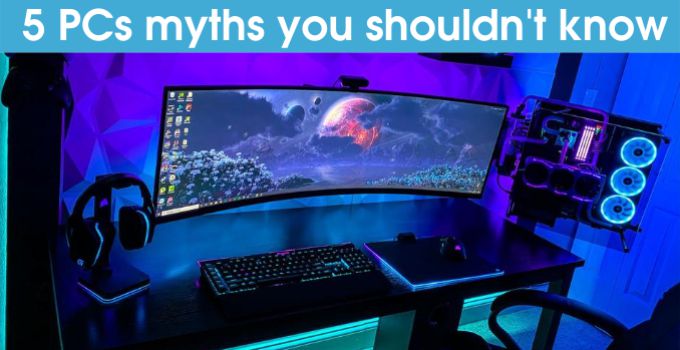Here we are discussing PC urban myths you need to know.
There are new brand folks to this computer system genre the moment it has to do with constructing their very first personal computers acquiring it becoming into this type of material.
This means this type of material is definitely relevant. Also, the urban myths are obviously typed of shifting just a tiny bit overly constantly, to tell the truth.
So we are likely to kick off this at no specific arrangement; however, all these really are matters you frequently may hear individuals state; yet, they don’t really know very well what it really is they’re saying.
So instead of just how people are tremendously mistaken by listening to those matters and imagine these.
I am gonna attempt to Provide You a Bit of detail, seeing some fictitious misconceptions.
Table of Contents
Using too high wattage of a PSU can damage your system
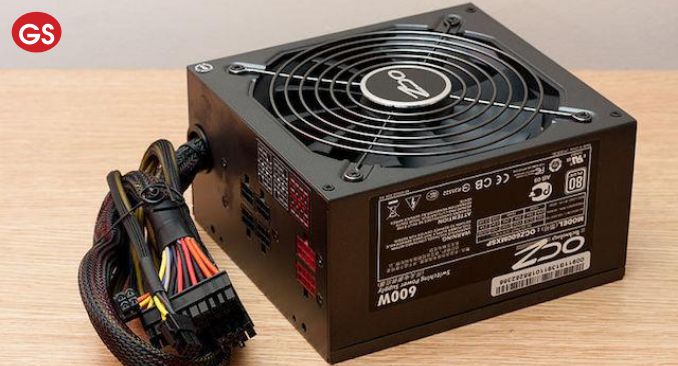
This is one that I have personally had people say to me, and that is why are you putting such a significant power supply on there.
Putting a more substantial power supply on your computer is gonna damage it because the computer can’t use all that power or it’s pushing more power than the parts can use.
That’s don’t even need to say that that one’s false power supplies don’t push power computer parts to draw power and there’s a maximum draw available based on the power supply that you use.
Now the reason why I use bigger power supplies and people often think that I need for instance I’ll run a thousand-watt power supply on a single graphics card nominal CPU system that’s not running a ton of hard drives is because of the efficiency curve.
It’s a pretty common if you look at the efficiency curve of a power supply that it’s most efficient between 50 and 70 percent utilization of its max power output.
So to keep things as efficient and as cool as possible with my power supplies I tend to oversize them.
Sometimes it’s a waste of money but I’m not hurting anything.
SSDs don’t live as long as HDDs:
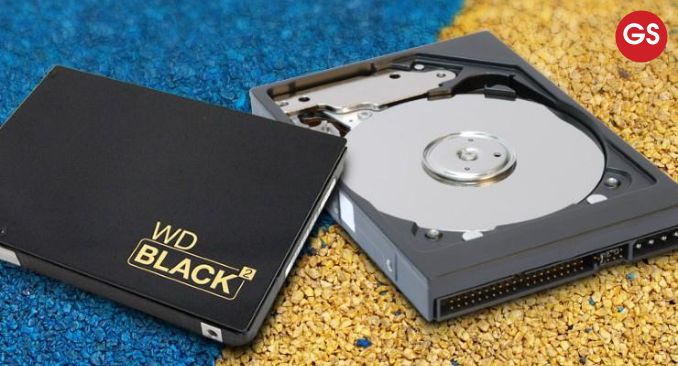
Well my friend Jame actually said that one’s plausible.
So the reason why Jame says that this one’s considered plausible because yes as I just said there is a finite amount of reading rights available to an SSD before it starts to degrade that’s just the way NAND works.
Hard drives though, on the other hand, are also much more fragile they’re not very friendly with magnets another way you can destroy data.
They’re also not very friendly when it comes to shock by shock I don’t mean like electricity, I mean sudden impacts and things like that.
It is a platter that is spinning called read head basically reads the data off the platter.
So SSDs although much more durable do have a limited amount of lifespan.
Are you gonna reach that lifespan? PROBABLY NOT
Too many cables in a system can negatively affect airflow
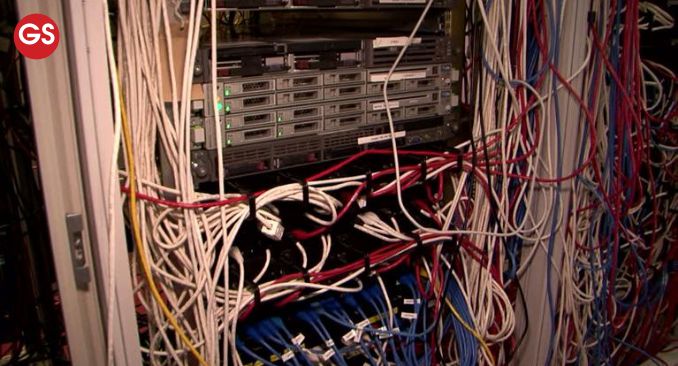
Now this next one, and that is that having too many cables or bad cable management inside your system will decrease its airflow and therefore overheat your system.
That’s not true in fact what testing is shown continuously is that in equal air out and that unless you have complete solid blockages.
The round cables and even though they’re all clustered together are no more restrictive than trying to blow air through a bush.
It’s kind of like you’re not moving enough air for it to make a difference and as long as you have airflow the PC will stay nice and cool.
What’s more important actually is the balance of the airflow through whether or not you have positive pressure negative pressure or neutral pressure.
Leaving your computer on overnight is bad for the hardware

You see it really kind of depends on how much memory you have kind of coming all the way back to that memory thing where.
There’s something on your computer called a page file that is every time it goes to sleep or hibernates it has to store everything your computer was doing in an easy-to-access file.
So that when I wake up again, it can load everything back, and that all gets stored in RAM.
In fact, we should probably do a piece one day on how to modify your page file how big or small it is but the myth is also stating that by leaving your computer on all night all day is actually better for it.
Well, that’s not always the case kind of tying back to some of these other myths.
If you have inadequate cooling and it’s sitting there hot all night you could be causing some degradation or just generally slow down.
To whether we come back to it in the morning and try and do your general tests well it’s nice and slow because of the fact that it’s overheating.
I’ve also found that turning your computer off at night is just generally good for it because why leave your computer on all night wasting energy doing nothing.
There’s no reason for it at least put your computer to sleep or hibernate if you’re gonna be going leaving it on all night.
But I also found that most often the points of failure in a computer tend to happen when you power it on.
Turning on the computer for some reason seems to be the trigger for some components to die whether or not.
Whatever the reason is behind that I’m not sure but recommended to leave your computer on.
But it’s recommended to turn your computer off when you’re not using it because of the environment.
Overclocking the computer can reduce its lifespan
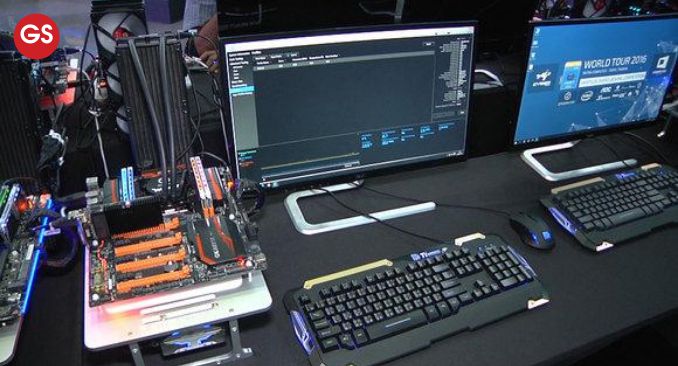
That myth is actually sort of true ok here’s what happens when you overclock your parts you’re obviously running it outside of its manufacturally specified parameters whether it will be more voltage or faster core or both.
The lifespan of a CPU and the manufacturing process of silicon today has become so good that a CPU that would last 10 plus years at factory settings would overclock to its maximum performance and.
Max ability might shave 10% to 15% off of its lifespan making it now an eight and a half to a nine-year-long processor.
Making it last long enough to definitely be no longer relevant to modern tech but not to the point to where you’re probably gonna kill it.
What tends to kill processors is too much voltage.
So I say it’s sort of a half-truth because you have to be smart about the way you overclock it, but at the same time you have to be realistic about what you want to get out of your computer
our max overclocks that we run around here are not the max overclock achievable up by their processors, but the max stable overclocks that we’re comfortable pushing at.
let’s face it most people upgrade their systems at around the five-year mark and if you could have had a CPU run ten years and.
Now it’s running eight at max from the overclockable performance you really didn’t change anything in the long picture of the long.
The big picture when it comes to things what you might notice over time is a slight degradation of the silicon which means what is achievable today might not be obtainable in a year or two.
Both Jame and I have experienced PCs to where we’ve overclocked them to the point where after a year or two, we’ve had to drop them maybe a hundred megahertz and add another 50 millivolts of voltage to get it stable once again.
But the fact is we’re still running at the overclocked outside of the specified parameters and they’re not dead.

